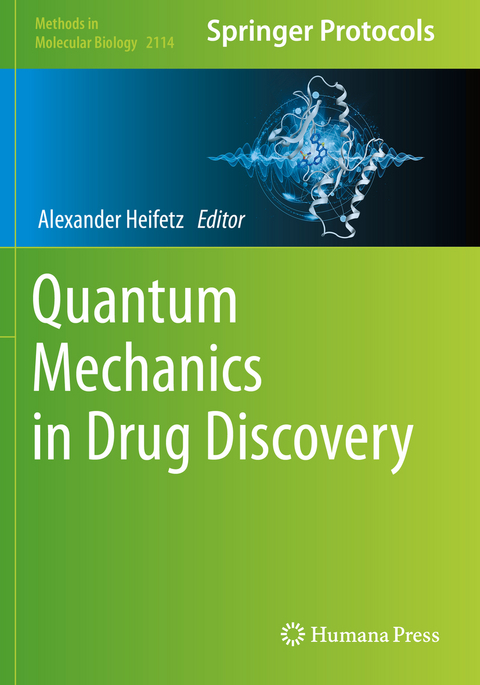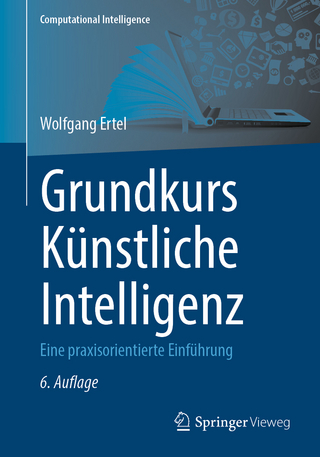
Quantum Mechanics in Drug Discovery
Springer-Verlag New York Inc.
978-1-0716-0284-3 (ISBN)
Cutting-edge and unique, Quantum Mechanics in Drug Discovery is a valuable resourcefor structural and molecular biologists, computational and medicinal chemists, pharmacologists, and drug designers.
Current and Future Challenges in Modern Drug Discovery.- QM Implementation in Drug Design: Does It Really Help?.- Guiding Medicinal Chemistry with Fragment Molecular Orbital (FMO) Method.- Analyzing Interactions with the Fragment Molecular Orbital Method.- Underappreciated Chemical Interactions in Protein-Ligand Complexes.- Geometry Optimization, Transition State Search, and Reaction Path Mapping Accomplished with the Fragment Molecular Orbital Method.- Taking Water into Account with the Fragment Molecular Orbital Method.- Computational Methods for Biochemical Simulations Implemented in GAMESS.- QM in Seconds with the Fragment Molecular Orbital and Density-Functional Tight-Binding Methods.- Protein Molecular Dynamics Simulations with Approximate QM: What Can We Learn?.- Analyzing GPCR-Ligand Interactions with the Fragment Molecular Orbital (FMO) Method.- Characterizing Rhodopsin-Arrestin Interactions with the Fragment Molecular Orbital (FMO) Method.- Characterizing Protein-Protein Interactions with the Fragment Molecular Orbital Method.- Conformational Searching with Quantum Mechanics.- User-Friendly Quantum Mechanics: Applications for Drug Discovery.- Binding Free Energy Calculation Using Quantum Mechanics Aimed for Drug Lead Optimization.- Molecular Docking Using Quantum Mechanical-Based Methods.- QM Calculations in ADMET Prediction.- Design and SAR Analysis of Covalent Inhibitors Driven by Hybrid QM/MM Simulations.- What’s Next for Quantum Mechanics in Structure-Based Drug Discovery?.
| Erscheinungsdatum | 05.02.2021 |
|---|---|
| Reihe/Serie | Methods in Molecular Biology ; 2114 |
| Zusatzinfo | 117 Illustrations, color; 33 Illustrations, black and white; X, 360 p. 150 illus., 117 illus. in color. |
| Verlagsort | New York, NY |
| Sprache | englisch |
| Maße | 178 x 254 mm |
| Themenwelt | Mathematik / Informatik ► Informatik ► Theorie / Studium |
| Medizin / Pharmazie ► Pharmazie | |
| Naturwissenschaften ► Biologie ► Biochemie | |
| Naturwissenschaften ► Biologie ► Genetik / Molekularbiologie | |
| Naturwissenschaften ► Chemie ► Technische Chemie | |
| Technik | |
| ISBN-10 | 1-0716-0284-5 / 1071602845 |
| ISBN-13 | 978-1-0716-0284-3 / 9781071602843 |
| Zustand | Neuware |
| Informationen gemäß Produktsicherheitsverordnung (GPSR) | |
| Haben Sie eine Frage zum Produkt? |
aus dem Bereich


